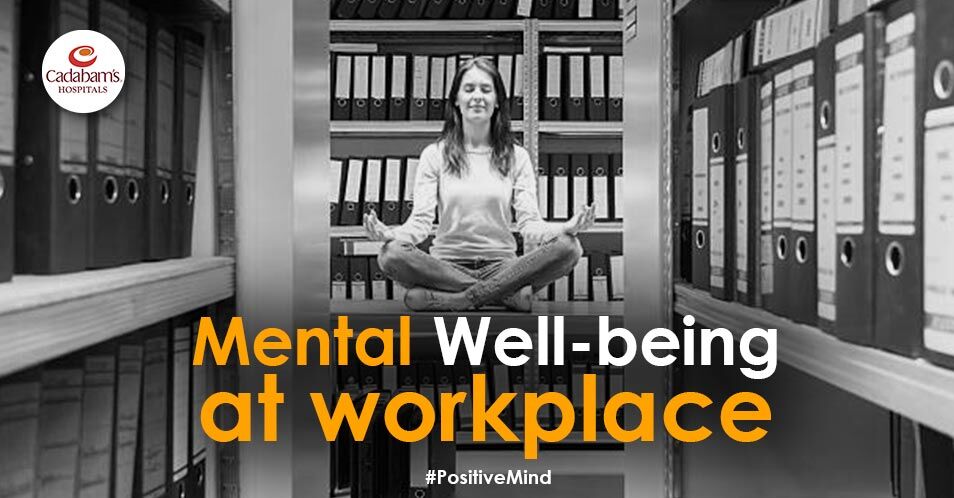Table of Content
On average, an individual spends 90,000 hours of their lives working in their chosen profession. As the world is shifting from the online to the offline mode, many people are empowered to prioritize their mental health over their job, especially ones that have been exceedingly physically or psychologically taxing.
People who worked through the worldwide health crisis are looking into a change of pace in life and leaving their workspaces at a rapid speed, with 4 million individuals quitting in the US alone (Liu, 2021). At a time like this, it becomes important to focus on mental health in the workplace that takes steps to cater to the mental well-being of its employees and provides them with opportunities with advancements.
9 Simple Ways to Create a Mentally Healthy Workplace
On the Part of the Employer: How to improve mental wellbeing in the workplace.
- How do companies take care of their employees? : Mental Health Workshops
One of the first steps that can be taken to answer the question of how to promote mental health and wellbeing in the workplace is to increase the awareness people have about mental health.
Workshops can be held on topics such as burnout, work-life balance, depression, self-confidence, and time management. An implication of this would be that employees know that their employer is open to talking about mental health. - Training Managers in Identifying Signs: How to implement mental health awareness in the workplace?
Along with workshops for employees, employers can organize skills training programs for managers or administrators. This would help these individuals identify any changes in the behaviors or working habits of employees they are in contact with on a day-to-day basis. - Open Lines of Communication
Maintaining open lines of communication between the management and the employees would help the employers ascertain which employees are in need of assistance while allowing the employees to freely communicate difficulties they are facing and ask for help. - Giving Support while Maintaining Independence
When joining an organization, every individual has a set of personal and professional goals they aim to fulfill. Allowing employees to work towards their personal developmental goals while fulfilling their job roles gives the employees a sense of purpose and personal achievement. Further, supporting the employees while awarding them the independence to set deadlines for themselves, and monitoring the same through policies, gives them a sense of control over their work life. - Creating Fair Policies
People appreciate knowing that their well-being is looked after. When employers have fair policies in place (regarding mental health, working hours, job roles, fair pay, advancement opportunities, bullying, and harassment), employees feel safe in their work environment. Further, the concept of quid pro quo comes into play. Employees receiving opportunities and fair treatment are more likely to help employers achieve organizational goals. - Creating an Inclusive and Positive Work Environment
Discrimination, bullying, harassment, and other negative stressors can cause disruption in one’s mental health. This disruption along with feelings of being over-worked or stuck in their roles without much personal and professional advancement can lead to what is called a toxic work environment. Creating an environment that is inclusive of employees from differing backgrounds and incorporating policies that safeguard the employees can help create a positive workspace.
On the Part of the Employee
Adapting to New Routines
Humans are animals of habit. People establish patterns of behavior and may become distressed when these patterns are unsettled. Thus it becomes important to slowly change one’s routine, instead of implementing an abrupt change.
Getting settled in the new routine in a paced-out manner allows the individual to understand what works for them and what does not.
Making a routine that balances an individual’s personal and work life is of the utmost importance.Maintaining Work-Life Balance
Establishing clear boundaries between one’s personal life and professional life is necessary for making optimal use of one’s physical and psychological resources. One should remember not to carry work home and limit personal errands in between their work timings. Creating these boundaries helps us make a clear demarcation and prevents us from overworking or burning out.
Asking for Help
Some see asking for help as expressing vulnerability, but it becomes necessary when one believes that they do not possess adequate resources to deal with a situation by themselves. One can make a list of areas they may need help in, and ask for and accept help when it is offered. They can also establish work relationships that could be of help in emergency situations and look into delegating work.
How Cadabam's Help you for Addiction?
- 410+ Professional Consultants
- 1,00,00+ Happy Faces
- 120+ Currently Seeking Treatments





